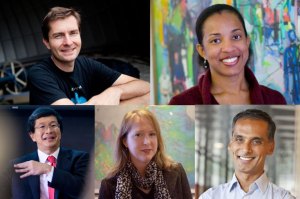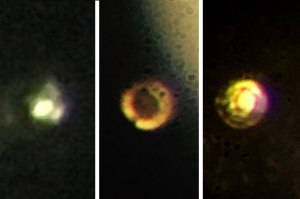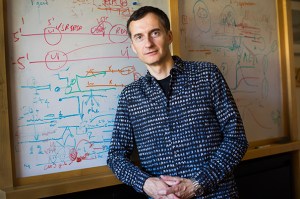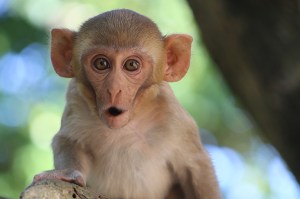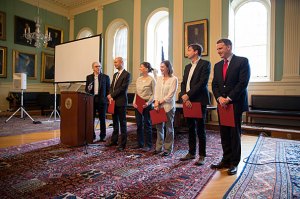Tag: Faculty of Arts and Sciences
-
Science & Tech
A revised portrait of psychopaths
A study suggests that while psychopaths do feel regret, however, it doesn’t affect their choices.
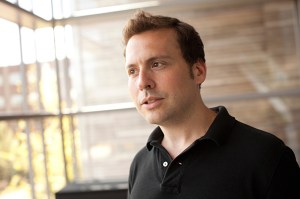
-
Health
Spotting speedy brain activity
Using ultra-fast MRI scans, scientists are able to track rapid oscillations in brain activity that previously would have gone undetected, a development that could open the door to understanding fast-occurring cognitive processes that once appeared off-limits to scientists.
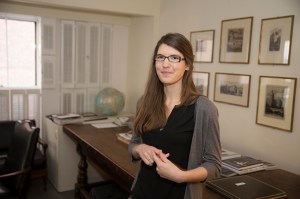
-
Science & Tech
Diamonds are a lab’s best friend
Using the atomic-scale quantum defects in diamonds known as nitrogen-vacancy centers to detect the magnetic field generated by neural signals, scientists working in the lab of Ronald Walsworth, a faculty member in Harvard’s Center for Brain Science and Physics Department, demonstrated a noninvasive technique that can show the activity of neurons.
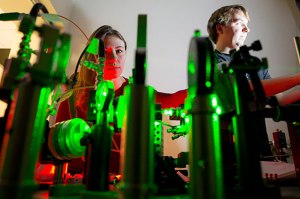
-
Science & Tech
Harvard students, meet the Stone Age
Students taking part in a new freshman seminar class learn to appreciate the sophistication of Neanderthals by manufacturing their own stone tools from scratch.
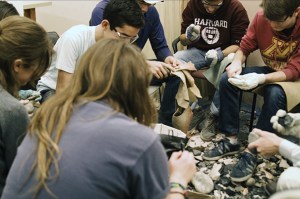
-
Campus & Community
Giving thanks for each other
FAS Giving Thanks garners more than 4,000 notes of appreciation for faculty and staff.
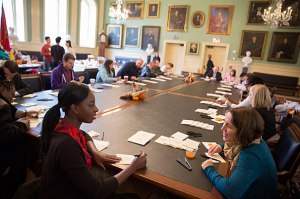
-
Health
What do we know about suicide? Not nearly enough
Despite decades of research aimed at understanding suicide, scientists are no better at predicting self-harm than they were a half-century ago.
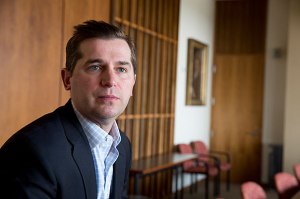
-
Nation & World
No letup for Nobel winner
Oliver Hart, the co-recipient of the Nobel Prize in economic sciences, takes on an old question in a new paper — what should the goals of a public company be?

-
Campus & Community
Becoming her fullest self
Sarah Lewis ’97 talks to the Gazette about returning to Harvard to join the faculty of the History of Art and Architecture.
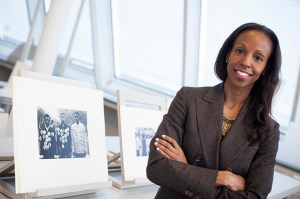
-
Campus & Community
On becoming a man: Transgender in the workplace
The Faculty of Arts and Sciences’ summer Diversity Dialogue, “Transgender Inclusion in the Workplace,” gave voice to the transition and how to make it come together.

-
Health
How the brain develops
In an effort to get a clearer picture of how the brain and the connections between its regions change throughout development, Harvard scientists and researchers from three other universities will share a $14 million grant to support one of the most comprehensive brain-imaging studies ever undertaken.
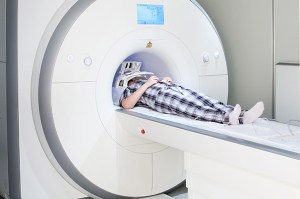
-
Science & Tech
New way to model molecules
Scientists from Harvard and Google have demonstrated for the first time that a quantum computer could be used to model the electron interactions in a complex molecule.
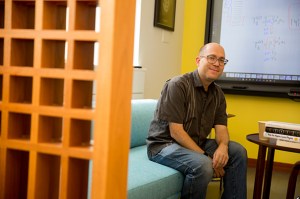
-
Health
Similar designs, 100 million years apart
A study found that both Rusingoryx atopocranion, a relative of the wildebeest, and hadrosaur dinosaurs evolved large bony domes on their foreheads, which were likely used as resonating chambers to warn of predators and communicate with others.
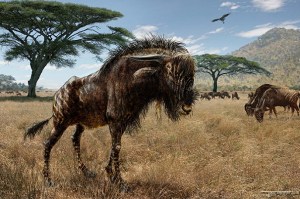
-
Science & Tech
Minding the details of mind wandering
A new study sheds light on important differences between intentional and unintentional mind wandering.
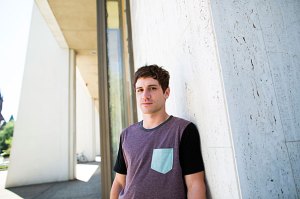
-
Health
The parrot knows shapes
Despite a visual system vastly different from that of humans, tests showed the bird could successfully identify both Kanizsa figures and occluded shapes. The findings suggest that birds may process visual information in a way that is similar to humans.
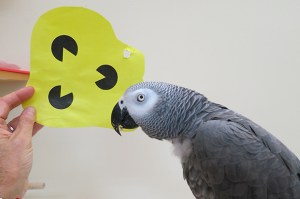
-
Health
Auditory cortex nearly identical in hearing and deaf people
The neural architecture in the auditory cortex — the part of the brain that processes sound — of profoundly deaf and hearing people is virtually identical, a new study has found. The study could point the way toward potential new avenues for treating deafness.
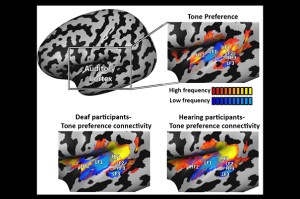
-
Health
Clues to camouflage
Chromatic aberration may explain how cephalopods can demonstrate such remarkable camouflage abilities despite being able to see only in black and white.
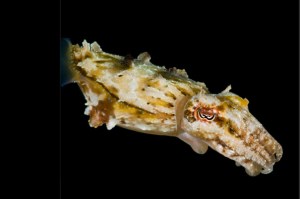
-
Health
The bionic cardiac patch
Harvard Professor Charles Lieber and other scientists conducted a study that describes the construction of nanoscale electronic scaffolds that can be seeded with cardiac cells to produce a bionic cardiac patch.
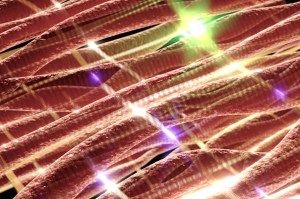
-
Science & Tech
More time free from disability
Harvard researchers are among the co-authors of a new study saying that the increase in life expectancy in the past two decades has been accompanied by an even greater increase in years free of disability, thanks in large measure to improvements in cardiovascular health and declines in vision problems.
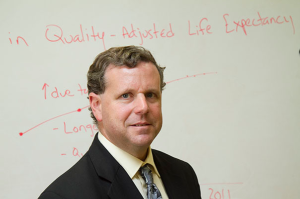
-
Arts & Culture
Unconventional wisdom
Professor Michael Puett has brought his popular undergraduate class on Chinese philosophy to a wider audience with “The Path.”

-
Arts & Culture
Curating a visual record
Sarah Elizabeth Lewis, assistant professor of the history of art and architecture and African and African-American studies, guest edited the magazine Aperture, producing an issue called “Vision & Justice,” the first on African-Americans, race, and photography for the magazine.
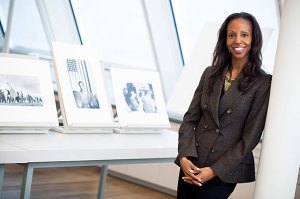
-
Arts & Culture
In anti-lynching plays, a coiled power
Magdalene “Maggie” Zier turned her senior thesis about anti-lynching plays into a live performance at Harvard Law School.
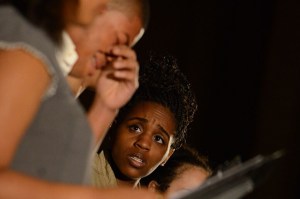
-
Campus & Community
A mother and son at trails’ end
Harvard’s Commencement on May 26 will be twice as meaningful for Jane Brown when she shares the milestone with her son Harry Stone.
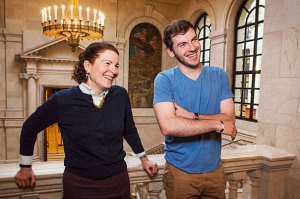
-
Campus & Community
From around the world and across Harvard
The Radcliffe Institute for Advanced Study has named 50 fellows for the 2016-17 academic year. Eleven of the incoming class are Harvard faculty.
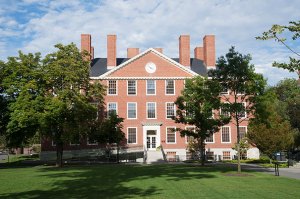
-
Arts & Culture
Radio heads
A dedicated group of students work hard to make WHRB, Harvard’s 24-hour radio station, run 365 days a year.
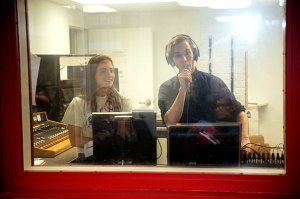
-
Campus & Community
Five named Harvard College Professors
Five faculty members have been selected as Harvard College Professors, five-year appointments that provide them with extra support for research or scholarly activities, a semester of paid leave, or summer salary.
